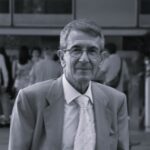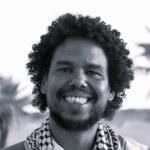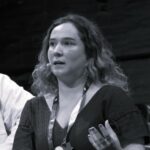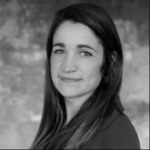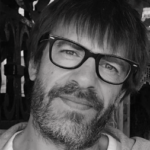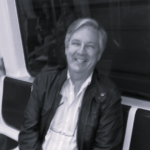Program
Day 1
MONDAY November 18, 2024
Video resume first day
Information, registration, and reception of attendees
by Daniel Martínez, president of Grup Focus
by Xavier Marcé, Councilor for Culture and Creative Industries of Barcelona City Council
Presentation of the morning program
Rio de Janeiro, 2014. I asked a stranger to come to her house and photograph her as if she were part of her intimacy. It was the beginning of Collection of People, a collection of 4 projects: Lovers, Collectors, Artists and Spectators. All the collections are accumulating. In each city I go to, I collect more people. From these encounters one by one, I create shows, performances, conferences, books and exhibitions to create an archive of what is ephemeral.
Coffee break
Is the concept of the spectator, as conventionally defined, at risk in contemporary times? Factors such as war, the climate crisis, technology, virtuality and artificial intelligence are reconfiguring audience experiences. What new challenges might these changes bring and how can we address them to preserve and adapt the role of the spectator in the performing arts?
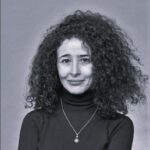 Basma Eleuchi Tunisia
Moderator
Basma Eleuchi Tunisia
Moderator
Spectator-character relationship: the elements of psychological conversations in the theatre
Available on videoTheatre is a relational experience that reproduces life and human interactions both on stage and in the connection between actors and spectators. The electric air that arises between them is explained through psychological elements such as transference, identification, projection and empathy, which generate implicit conversations between the audience and the characters. Based on interviews with theatre participants in Berlin, London and New York, it is observed that these interactions not only enrich the theatrical experience, but also have a therapeutic effect by allowing for shared emotional creation.
Guided tour to the exhibition “Collection of Spectators”
Free lunch
Presentation of the afternoon program
How does one become a spectator? How do artistic abilities develop in adulthood? Being a theater spectator offers an opportunity for lifelong learning by broadening one’s perspective and appreciation of the performing arts.
 Daniela Millar Chile
Moderator
Daniela Millar Chile
Moderator
What is the theatre audience like, and how do they behave during performances? How do they express their enjoyment or dislike—do they applaud, shout, or react in real-time? What about their interactions before and after the show? Do they hang around to talk about their experience or wait to meet the performers?
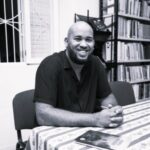 Yannick Stiven Fortes Pimenta Cape Verde
Moderator
Yannick Stiven Fortes Pimenta Cape Verde
Moderator
 María Sol Putrino Argentina
Moderator
María Sol Putrino Argentina
Moderator
Guided tour to Teatre Romea
Exclusive activity for international guests
Day 2
TUESDAY November 19, 2024
Video resume second day
Information, registration, and reception of attendees
Summary of the 1st day and presentation of the morning program
There have been many discussions about how to involve young people in the performing arts, yet too often these conversations happen without any youth voices in the room. In this interactive roundtable, each participant will be invited to take on a specific role, stepping into the shoes of young people, institutions, educators, and other key stakeholders. Together, we’ll explore the obstacles young people face, strategies for improving communication and engagement, and fresh opportunities that can benefit both institutions and young people alike.
Cultural mediation is increasingly present in the field of performing arts, generating formats and returns of great value and helping us to question and expand the limits of our practices, as well as their place in the social framework of which culture is a part. Asking ourselves questions such as: Who is coming? Who is not coming? Who are we reaching? or Who is missing? It goes beyond a marketing exercise; it is part of a commitment to contemporaneity that any artist, theatre, programmer or cultural centre should consider. Cultural mediation can provide answers and keys to confront these challenges.
Coffee break
How can we ensure that all spectators have equal access to their cultural rights, such as participation, cultural identity, and heritage? How can theaters not just improve access but also encourage active participation and inclusion, making sure that different cultural identities and histories are respected and represented?
 Melissa Giorgio Alcalde Peru
Moderator
Melissa Giorgio Alcalde Peru
Moderator
From the perspective of the educational departments or audience engagement areas of performing arts festivals, what strategies are used to attract spectators? Is quality prioritized over quantity? What are the ethical and social implications for artists and curators when presenting performances that involve the lived experiences of the participants?
 María José Enríquez Polo Ecuador
Moderator
María José Enríquez Polo Ecuador
Moderator
Guided tour to the exhibition “Collection of Spectators”
Free lunch
Performance as Action – Action as Performance
The workshop aims to experiment with composition and creation methodologies in the performing arts based on autobiographies, personal objects, fiction vs. reality, research as practice, autotheory, “the personal is political”, the practical (the action / the participation), and the relational turn. This workshop is an approach to contemporary practices in the performing arts. Sharing my practice with “Collection of People” we will experiment with different composition exercises to build actions – performative actions – stage narratives and performative programs.
Workshop in Spanish. Translation services are not provided.
Prior registration is required for the workshop.
It takes place in a classroom at the Escola Massana.
The artistic mediation workshop proposes performative debates or “reverse debates”, designed by iNerTE, where the analysis of the theatre begins with the personal experience of each spectator in front of a selected show. Based on video fragments, collective acts are encouraged in which, instead of asking about the meaning of the work, each person reflects on their own impact and concerns regarding the theatrical experience. This methodology seeks to change the analytical axis, focusing on the aesthetic effect on the audience and rethinking the relationship between the scene and the spectator.
Workshop in Spanish. Translation services are not provided.
Prior registration for the workshop is required.
It takes place in a classroom at the Escola Massana.
Spectators, consumers, communities, people. Mediation strategies for the performing arts
We will question the concepts of spectators/visitors, public, communities, and citizenship. What are they, who are they, what is our relationship and what could it be? Beyond the recruitment and accumulation of attendees, can we delve into the links that connect us? What would need to be activated, and what would it cost in terms of time, economy, and methodology? Cultural mediation as a discipline – and as a toolbox – will allow us to imagine these potentials, a qualitative way of generating meaningful experiences. Starting from various examples with different audiences and communities, case studies that illustrate how to reach where conventional tools cannot reach, warnings, and learnings. Who is missing from “our spectators”? We open the doors, we adjust the prices, but they don’t come. Why? Do we care enough to undertake changes and long-term strategies?
Workshop in Spanish. Translation services are not provided.
Prior registration for the workshop is required.
It takes place in a classroom at the Escola Massana.
It explores how the emotional connection between the audience and the theatrical characters can promote personal well-being. Through dynamics that address transference, identification, and empathy, participants will experience how these “psychological conversations” with the stage allow them to reflect on their own emotions, fostering a space for self-knowledge and emotional enrichment.
Workshop in English jointly with psychiatrist Christian Heim. Translation services are not provided.
Prior registration for the workshop is required.
It takes place in a classroom at the Escola Massana.
Day 3
WEDNESDAY November 20, 2024
Video resume third day
Information, registration, and reception of attendees
Summary of the 2nd day and presentation of the morning program
Among all the activities organized around theater performances, the aftertalk—where the audience meets the artists after the show—is definitely the star. But what exactly does this interaction bring to the audience, the artists, and the theaters themselves? Is there a case for holding these discussions without the artists? Could it allow the audience to express themselves more freely?
 Veronika Streltsova Ukraine
Moderator
Veronika Streltsova Ukraine
Moderator
Calling oneself as spectator: between theatrical mediation and aesthetic effect
Available on videoThe relationship between theatre and audience will be analyzed in the current context, exploring how stage practices address the urgent needs of society and the historical changes in theatrical art. The dependence of theatre on an active spectator is highlighted, whose presence encourages a deeper dialogue than simple applause. The reflection suggests that both artists and producers must question the purpose of their creations and their connection with spectators, since the development of theatre and its aesthetic strength depend on mediation strategies that strengthen this essential relationship.
Coffee break
How can the arts effectively combat unwanted loneliness through intergenerational projects? In what ways can the arts serve as a placemaking tool to bring together diverse communities? How can the arts address significant social issues, including accessibility, mental health, discrimination, and community awareness? What role do collaborations between arts organizations and various stakeholders—such as social services, schools, and neighborhood groups—play in these initiatives? How is art perceived within the community, and what steps can venues take to reshape these perceptions and foster inclusivity?
 Erola Albesa Solsona Spain
Moderator
Erola Albesa Solsona Spain
Moderator
 Maria Verdu Delgado Morocco
Moderator
Maria Verdu Delgado Morocco
Moderator
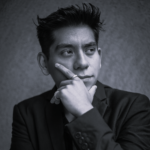 Roberto Antonio Hernández Zayas Mexico
Moderator
Roberto Antonio Hernández Zayas Mexico
Moderator
How can theatrical experiences be fun? How did we encounter theatre for the first time? Was it fun? Does the understanding of the word “fun” change according to age? How does the theatre provide fun for all ages? Can participation of the audience or amateurs in the dramaturgy or the acting create enjoyment? Are there different ways? How about new media and new technologies in the performing arts? What has theatre to offer that differs from other leisure activities?
Summary of the morning session and afternoon schedule
Free lunch
Guided tour to Gran Teatre del Liceu (opera house)
Show created from a workshop held with theatre spectators from Barcelona.
Who is the spectator? Who are those strangers that Raquel André has been archiving in images, texts, and objects in the frame of her Collection of People, for almost a decade? How was the direct artistic relationship activated by André perceived by them? How did they feel through the experience of an encounter? Who are these participatory witnesses? Who are these spectators?








